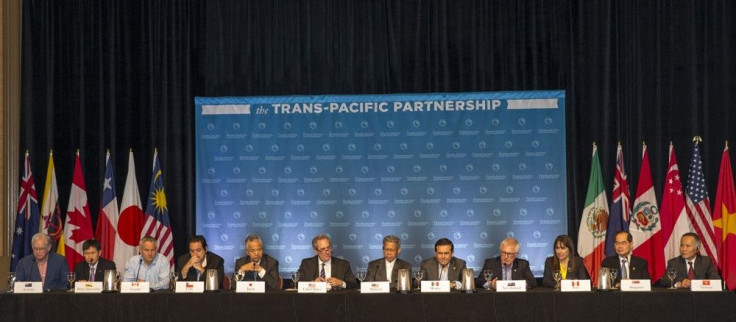TPP: Trade ministers hope to shorten negotiations, close deal this week

There is a huge chance that the Trans-Pacific Partnership could come to a closed deal this week, but only if the pact isn’t hampered by prolonged negotiations, according to New Zealand Prime Minister John Key. Australian Trade Minister Andrew Robb noted that ministers from the 12 countries participating in the TPP met in Atlanta, Georgia, and have pledged to close the deal within the week.
Should the TPP be made into a done deal, it is set to cut trade barriers and promote a common standard for 40 percent of the world economy.
However, issues such as intellectual property to trade in dairy and vehicles are yet to be solved. New Zealand for one is not happy with the unresolved issue of dairy market access, although intellectual property rights concerns are coming to a close, reported Otago Daily Times.
Japan, on the other hand, is pushing for flexibility in how and where they can source auto parts. The Japanese automobile industry depends on sales to the U.S. market, and getting a good deal for its automakers is a priority. At the same time, apart from its automobile industry, being the second most powerful economy after the U.S. in the bloc has pressured Japan to open its agricultural sector to more imports.
Exporting more sugar and dairy is Australia’s concern during the talks. The leading dairy exporter is also cautious with the intention of the U.S. to set patent periods for medicine that would extend beyond the five years currently mandated by Canberra.
Along with the aforementioned issues, monopoly periods for the next-generation biologics drugs are one of the unresolved issues the TPP has to face.
Time is of the essence to complete the deal. With the presidential elections in the United States set for November 2016 and opposition in Congress to the TPP, closing the agreement while still seated in power could be a legacy-defining achievement for U.S. President Barack Obama.
In mid-November, TPP leaders are scheduled to meet at the Asia-Pacific Economic Cooperation Summit in the Philippines, which Key said is “probably the last opportunity for 2015” to close the deal.
The TPP started in 2005 among four countries -- Chile, New Zealand, Brunei and Singapore -- and has removed tariffs on most goods traded between the countries, promoting cooperation on wider issues such as employment practices, intellectual property and competition policies.
Contact the writer at feedback@ibtimes.com.au, or let us know what you think below.





















